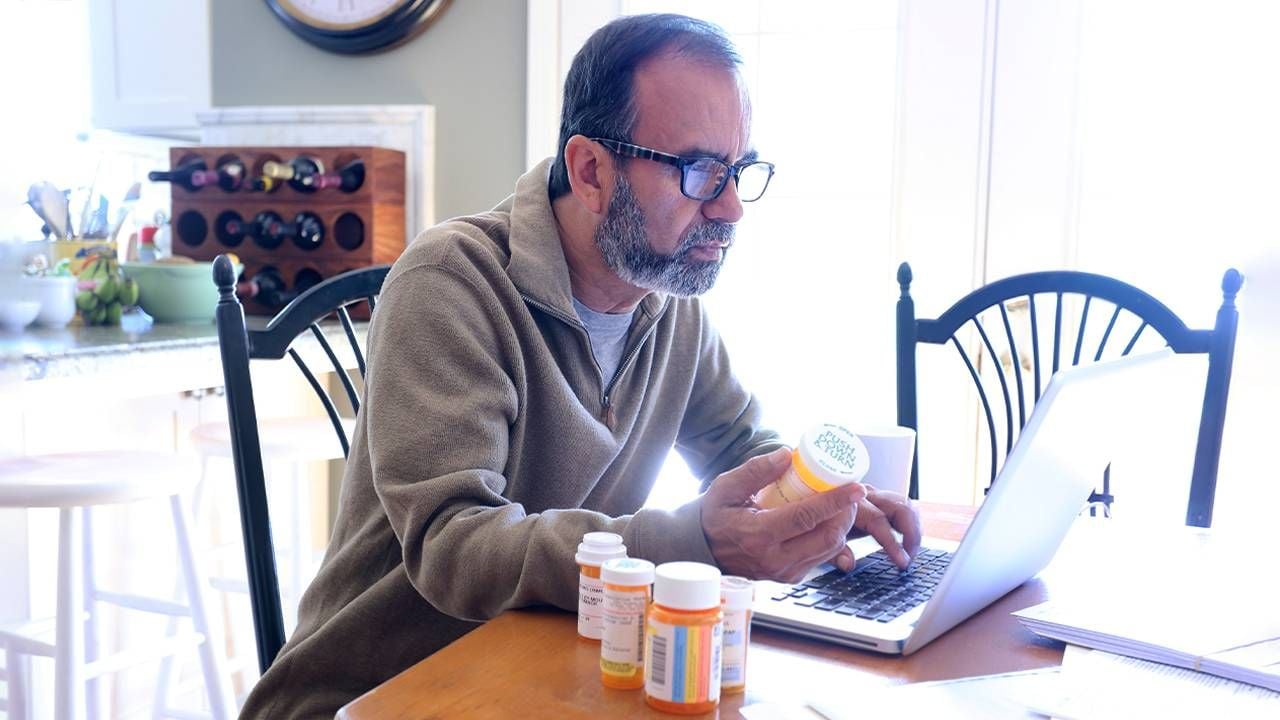Online Pharmacies: The Good, The Bad and The Very Bad
Online pharmacies can save you time and money, even if you have insurance drug coverage, but there are pitfalls to watch for
You're tired of spending so much money on prescription drugs, and you're perusing some very professional-looking websites of online pharmacies. The premises, and the promises, are enticing. Save money, free shipping, no prescriptions necessary, no doctor's visits needed.

There's Viagra for erectile dysfunction, medications that promise to help you lose weight, and opioid painkillers such as Oxycontin and Vicodin. You're a careful consumer. You read the fine print, but it doesn't seem like there's anything wrong with ordering from there. In fact, it seems like a great idea.
"These digital drug dealers know what consumers want and they oblige, with their main objective being selling you pills for profit."
Except that, if you don't know what to look for, you could very well be purchasing fake prescription pills containing fentanyl or methamphetamine from an international or domestic criminal drug network.
According to the Drug Enforcement Administration's 2021 Public Safety Alert, there is a huge surge in online sales of lethal counterfeit pills. Mass-produced in Mexico, smuggled into the U.S. and sold on popular social media and e-commerce platforms, they look just like their legitimate counterparts and are sickening and killing Americans at an unprecedented rate.
Many Buy Prescription Drugs Online
Americans across all demographics buy a wide range of prescription drugs online, including medications to treat ongoing conditions such as asthma or diabetes, specialty drugs such as those for cancer and frequently abused drugs such as Adderall for ADHD (attention-deficit/hyperactivity disorder).
According to the National Association of Boards of Pharmacy (NABP), of the approximately 35,000 online pharmacies around the world, 95% are unregulated and rogue, selling products that may be substandard, tainted or expired. Operating out of compliance with U.S. pharmacy laws and safety standards, they won't necessarily cure what's ailing you, and in fact, they could even kill you.
"Data shows that online pharmacies are being used by an increasing number of people, especially during the earlier stages of the pandemic when people weren't going into brick-and-mortar stores," says Libby Baney, senior advisor to the Alliance for Safe Online Pharmacies (ASOP Global) and the ASOP Global Foundation.
She explains, "People use them for convenience, cost and easy access to medications. It can often be less expensive to purchase medications there, even if you have health insurance and only are responsible for a co-pay. When they are legitimate and legal, providing you with the prescription medications that your doctor has ordered, online pharmacies can be a viable alternative to going to the pharmacy."
Legitimate is the operative word. How to separate the good online pharmacies and websites from the bad is very confusing to consumers, explains Baney. Even working in the health care field doesn't make it easier to separate the wheat from the chaff.
"These digital drug dealers know what consumers want and they oblige, with their main objective being selling you pills for profit," says Baney.
Are you ordering from an online pharmacy because you don't have time to get to the doctor's office? If there's not a "real" physician or pharmacist for you to chat with online, you could decide on your own that you need a Z pack or Cipro (types of antibiotics) for that persistent sore throat or urinary tract infection. You will be prompted to fill out a questionnaire which is supposedly reviewed by a pharmacist, and your medicine will soon be on its way.
The problem is that it might not be the right medication or dosage for your self-diagnosed problem, and you have no way of knowing if the drug you're getting is produced in a shoddy facility or if it contains a much smaller amount of active ingredient than it should.
Misconceptions About Online Pharmacies
In addition to jeopardizing your health, buying prescription medications from fraudulent online pharmacies can compromise your financial and personal data, infect your computer with a virus, and allow your information to be disseminated to other illegal websites and internet scams.
Even though both ship your medications directly to your home, your insurance plan's mail order pharmacy is different from an online pharmacy. Mail order pharmacies which operate through your health plan require that you have a particular kind of insurance, while online pharmacies are more like a drugstore and may or may not accept insurance.
Think you're a savvy consumer? The results of a May 2021 survey, "American Perceptions and Use of Online Pharmacies" by The Alliance for Safe Online Pharmacies (ASOP Global Foundation), were quite enlightening.
45% of respondents erroneously believe all websites offering health care services and prescription medications via the internet are safe, verified and approved by the U.S. Food and Drug Administration (FDA) or state regulators. This belief is even higher (59%) among those who have previously purchased medications online.
A shocking 25% of consumers say they would accept higher risk when buying from an online pharmacy for greater savings or increased convenience. 46% said they would be willing to purchase prescription medications from an online source that is not FDA approved if it gave them access to drugs they could not otherwise get or medicines at cheaper prices.
Many people believe erroneously that all Canadian medicines sold online are safe and legitimate.
45% of respondents erroneously believe all websites offering health care services and prescription medications via the internet are safe.
Better to Be Safe Than Sorry
Does this mean that you shouldn't use online pharmacies? Not at all. Savings can be substantial, especially if you or a family member take a number of medications. What it does mean is that you have to do your research carefully. There is plenty of information online (which is a bit of an oxymoron) that is educational and useful.
Some excellent sites to bookmark and familiarize yourself with include:
· The Alliance for Safe Online Pharmacies allows you to download a list of safe pharmacy websites or to search their site to see if one you're considering is legitimate. There is also a Facebook page.
· Your state board of pharmacy, your health care provider and your (legitimate, flesh and blood) pharmacist are excellent resources for learning how to buy and use medications safely.
· Look for sites with the VIPPS seal (Verified Internet Pharmacy Practice Sites) which are accredited. Or use Verify Before You Buy, a service from the Center for Safe Internet Pharmacies, or LegitScript.
· Look for ".pharmacy" at the end of a web address. When a website ends in .pharmacy, it has been verified by NABP. Unlike logos, the pharmacy domain cannot be faked or forged.
· Some of the most well-known and safe online pharmacies include Caremark Rx LLC, Costco Wholesale Corporation, GoodRx.pharmacy and Wal-Mart Stores Inc.
· Check Safe.pharmacy: Not Recommended Sites for an extensive list of sites that NABP eschews.
Dangerous narcotics and fake pharmaceuticals are also widely available for purchase on social media platforms like Facebook, Snapchat or Twitter. According to the Alliance to Counter Crime Online, drugs sales on these platforms fall into two categories: Illegal narcotics like heroin, cocaine and fentanyl, sold by individuals and criminal syndicates, and controlled substances such as opioid painkillers sold without prescriptions by rogue online pharmacies.
Social media algorithms enable the targeting of specific populations who are likely to want the products they are hawking.
The Dangers of a Rogue Pharmacy
Some red flags of an online rogue pharmacy include:
· Prescription medicines are dispensed after the patient has completed an online questionnaire but there is no prescription submitted or contact with doctor
· There is no toll-free phone number or street address for the internet drug outlet on their website, and the only way to communicate with them is by e-mail
· No pharmacist consultation is available either by phone or secure web-based communication
· They ship prescription drugs worldwide or are located outside of the U.S.
· Their prices seem outlandishly inexpensive
"Consumers are way too trusting when it comes to purchasing services or products online, including medication. Taking an anonymous vendor's word about safety and efficacy is putting your health in their hands, even if you have no idea who they are," says Baney.
Her advice? "Verify before you buy, and don't buy medications from social media companies and online marketplaces."


